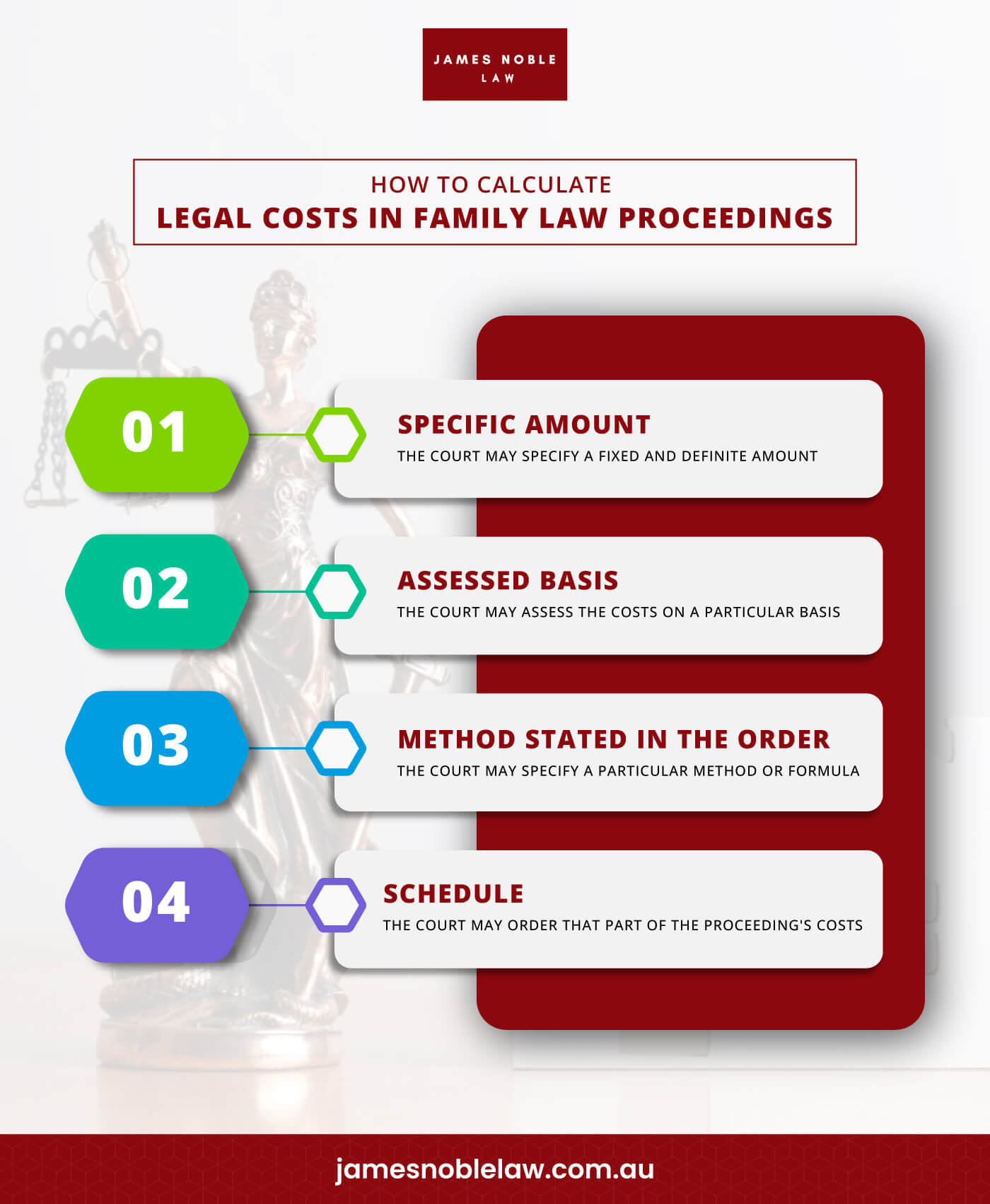
Legal Costs in family law proceedings: Overview and Legal Framework

The law relating to costs in family law proceedings is well settled and set out in detail in the Full Court decision of Parke & The Estate of the Late A Parke.
General Presumption and Exceptions
An application for costs is governed by s 117 of the Family Law Act 1975 (Cth) (“the Act”).
Section 117(1) of the Act sets out the general presumption that each party to the proceedings shall bear their own costs. This is subject to s 117(2), which provides that:
If, in proceedings under this Act, the court is of the opinion that there are circumstances that justify it in doing so, the court may make such order as to costs and security for costs as the court considers just.
Section 117(2A) sets out the matters that the Court is to have regard to:
 (a) the financial circumstances of each of the parties to the proceedings;
(a) the financial circumstances of each of the parties to the proceedings;
(b) whether any party to the proceedings is in receipt of assistance by way of legal aid and, if so, the terms of the grant of that assistance to that party;
(c) the conduct of the parties to the proceedings in relation to the proceedings including, without limiting the generality of the foregoing, the conduct of the parties in relation to pleadings, particulars, discovery, inspection, directions to answer questions, admissions of facts, production of documents and similar matters;
(d) whether the proceedings were necessitated by the failure of a party to the proceedings to comply with previous orders of the court;
(e) whether any party to the proceedings has been wholly unsuccessful in the proceedings;
(f) whether either party to the proceedings has made an offer in writing to the other party to the proceedings to settle the proceedings and the terms of any such offer; and
(g) such other matters as the court considers relevant.
Although the Court is required to consider each of the abovementioned factors, it is plain that their relevance to a particular matter will depend upon the circumstances of that case and they should be considered in that light. That is, no one factor prevails over another and it is a question of the weight that is to be afforded to each of the relevant factors, depending on the circumstances of the matter.
Costs are normally ordered by the Court, on a party/party basis. That is the cost for the actual work carried out as determined by the costs set out in the Family Court Rules.
Method of Calculation of Legal Costs in family law proceedings

However, the court may order that a party is entitled to costs:
(a) of a specific amount; or
(b) as assessed on a particular basis (for example, party and party, solicitor and client or indemnity); or
(c) to be calculated in accordance with the method stated in the order; or
(d) for part of the proceeding, or part of an amount, assessed in accordance with Schedule 3.
The rule further provides that:
In making an order the court may consider the following:
(a) the importance, complexity or difficulty of the issues;
(b) the reasonableness of each party’s behaviour in the proceeding;
(c) the rates ordinarily payable to lawyers in comparable cases;
(d) whether a lawyer’s conduct has been improper, unfair, unreasonable or disproportionate;
(e) the time properly spent on the proceeding, or in complying with pre-action procedures; and
(f) whether expenses (paid or payable) are fair, reasonable and proportionate.
Indemnity cost orders (the actual costs incurred) are made only in exceptional cases.
Whilst the categories of cases in which indemnity cost orders may be awarded are not closed, it is accepted that such costs may be ordered where a case was pursued with “wilful disregard of known facts or clearly established law” and where there has been “an imprudent refusal of an offer to compromise”.
In relation to the first category, it has been said that indemnity costs may be awarded where “the applicant, properly advised, should have known that he had no chance of success” and where “a party persists in what should on proper consideration be seen to be a hopeless case”.
Need help?
Contact the Brisbane family law team at James Noble Law today for a FREE 20-minute consultation no obligation. To schedule an appointment with one of our Qualified and experienced Affordable Family lawyers in Brisbane.
Find Brisbane family lawyers on Google Maps near you.
You may also like to know more information about the


